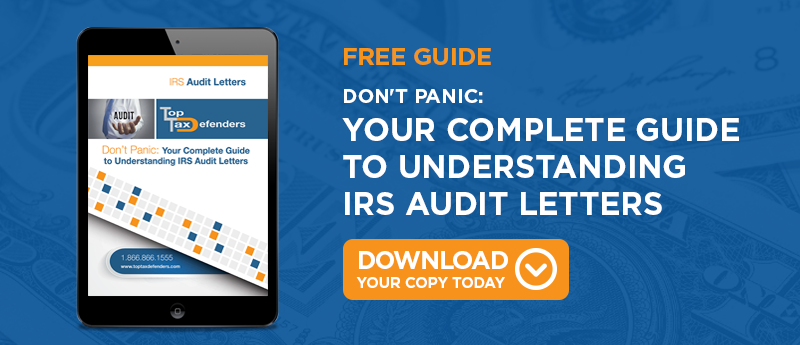
When taxpayers are selected for an IRS tax audit, they may have many common IRS audit questions and their biggest fear may be finding out that they owe additional income tax. For those who do, the agency may send a copy of Audit Letter 531 in the mail.
What is Audit Letter 531? What can you do if you receive Audit Letter 531? Do you have any recourse if you believe that your audit process has been completed incorrectly?
Why Does the IRS Send Audit Letter 531?
The IRS sends Audit Letter 531 as a notice of deficiency. This means that the IRS has completed your audit review and has decided that you owe additional federal income tax. Unlike Audit Letter 525 which may be used for an increased refund or an increased balance due, Audit Letter 531 is only sent out when the agency has decided that you owe more tax.
If you are unsure as to why you have received this letter, you should speak with a qualified tax expert who can review your account and explain the agency's findings to you.
What is on Audit Letter 531?
While the exact numbers and data will differ for each taxpayer, the basic information on Audit Letter 531 is normally the same. Be sure to look for the information that is most pertinent to your case, such as the dates of the tax year for which the return applies, the exact amount of the deficiency (additional tax owed), and the amount of any penalties that have accrued on the account.
Towards the bottom of the first page, you'll also find a short summary of the appeals process, which can help you understand how to request a hearing regarding your ruling. The IRS also lists a contact address you can use to request additional information by mail.
Can You Appeal an IRS Notice of Deficiency?
You as a taxpayer can appeal an audit notice of deficiency, but you must do so within the appropriate timeframe. The IRS gives taxpayers a window of 90 days to request an appeal of this ruling. You can inform the agency of your wish for an appeal by using the telephone number on the audit letter to contact an agent. Those who are currently living outside of the United States may have an extended window of up to 150 days to request an appeal.
If you decide you want to appeal the ruling, it is essential that you do so quickly. Failure to take action within the 90-day period may cause a taxpayer to lose his or her right to an appeal of the IRS audit ruling.
Receiving Audit Letter 531 means that you owe the IRS additional tax. But you do not have to remit the payment if you disagree with the result. Make sure to review your return carefully and seek qualified assistance before you agree to the agency's ruling.




